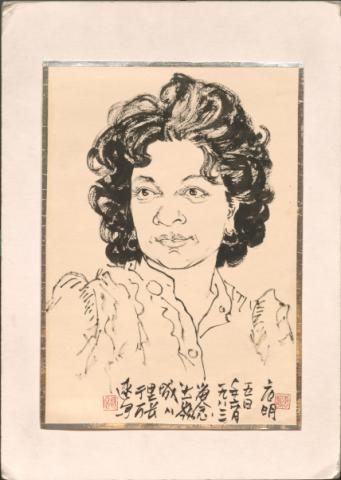Congratulations to former Consortium fellow Douglas O’Reagan. Starting in fall of 2015, O’Reagan will take up a post as Visiting Assistant Professor of Digital Humanities and Lead Archivist of the Hanford History Project at Washington State University - Tri Cities. O’Reagan is currently Postdoctoral Fellow at the Coleman Fung Institute for Engineering Leadership at University of California Berkeley.
Congratulations to former Consortium fellow Jonson Miller, who is currently Associate Teaching Professor in the Department of History and Politics at Drexel University. This year he served as technical consultant on a series of four children's books on the history of technology, published by Capstone Press. The books are entitled The First Computers, The First Airplanes, The First Cars, and The First Space Missions.
Congratulations to former Consortium fellow Sarah Bridger, whose first book, Scientists at War: The Ethics of Cold War Weapons Research, was recently published with Harvard University Press. Bridger is currently Assistant Professor in the Department of History at Cal Poly. She was a Dissertation Research Fellow at the Consortium in 2007-2008. Read more about Bridger's work while a fellow of the Consortium here.
Congratulations to former Consortium fellow Nick Best, whose article, “Meta-Incommensurability between Theories of Meaning: Chemical Evidence,” recently appeared in Perspectives on Science. His translation of an important paper by Lavoisier will soon be published in two parts in Foundations of Chemistry: “Lavoisier’s ‘Reflections on phlogiston’ I: against phlogiston theory,” and “‘Reflections on phlogiston’ II: on the nature of heat.” Nick Best is a Ph.D. Candidate at Indiana University. He was a Dissertation Research Fellow at the Consortium in 2009-2010.
The University of Toronto’s Fisher Library recently acquired (separately and fortuitously) paired items, print and manuscript, which document the ongoing life of a text: a first edition of the magnificent 1542 folio edition of Leonhart Fuchs’s De Historia Stirpium Commentarii Insignes and an unusual bound volume, in octavo, entitled Traité de botanique, containing the full page illustrations probably from a sixteenth century Basel edition of Fuchs, interleaved with notes and additional hand-drawn illustrations dating to about 1740.
Congratulations to former Consortium fellow Nicole Belolan, who received fellowship support from four sources for 2015-2016: A University Dissertation Fellowship from the University of Delaware (2015-2016); a Winterthur Library Dissertation Fellowship (2015-2016); a Center for Historic American Visual Culture Fellowship from the American Antiquarian Society (2015); and a Caesar Rodney Fellowship from the General Society of Colonial Wars (2015). Nicole Belolan is a Ph.D. Candidate at the University of Delaware. She was a Research Fellow at the Consortium in 2014-2015.
The Historical Society of Pennsylvania has recently processed the diaries of Deforest P. Willard, M.D., an orthopedic surgeon from Philadelphia who served in the U.S. Army during World War I in Britain and France, and the records of the American Society for Testing Materials, an organization founded in 1898 that helped to develop industry standards for steel used in rail construction. More information can be found here.
Congratulations to former Consortium fellow Roberto Chauca Tapia, who has been awareded a Jeannette D. Black Memorial Fellowship at John Carter Brown Library, Brown University, for his project, “Science in the Jungle: The Missionary Mapping and National Imagining of Western Amazonia.” He will begin his research at Brown in June 2015. Roberto Chauca Tapia was a Dissertation Writing Fellow at the Consortium in 2014-2015. Read more about his work here.
Congratulations to Heidi Hausse (2014-2015 Dissertation Writing Fellow), who has won a Mellon-ACLS Dissertation Completion Fellowship for 2015-2016. Her project is entitled Life and Limb: Technology, Surgery, and Bodily Loss in Early Modern Germany, 1500-1700. Read more about Heidi's research while a fellow of the Consortium here.
Cara Fallon, Harvard University
2014 to 2015 Research Fellow
Pagination
- Previous page
- Page 44
- Next page
